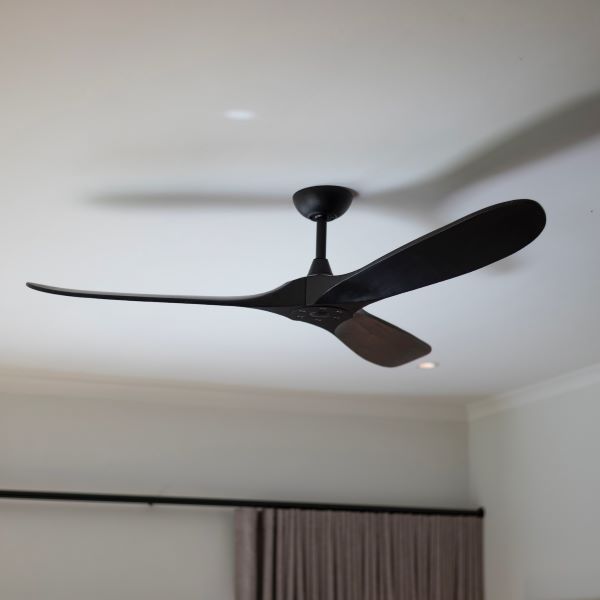Ceiling fans have been a staple in homes for decades, quietly humming above us, and providing relief from heat. Yet, despite their long history, a surprising number of The Misconceptions about Ceiling Fans persist. These myths often lead homeowners to either misuse their fans or overlook their benefits entirely. Let’s unravel some of the most common misconceptions about ceiling fans and shed light on their true potential.

Myth 1: Ceiling Fans Cool the Room
One of the most widespread myths is that ceiling fans cool a room. While it might feel cooler when you’re under one, it’s important to understand that ceiling fans don’t actually lower the room’s temperature. Instead, they work by circulating air, creating a wind-chill effect that makes your skin feel cooler. This is why it’s advised to turn off ceiling fans when you leave a room; otherwise, you’re just wasting electricity without any real benefit. Understanding this can help you optimize fan usage—use them when you’re in the room, and you’ll feel cooler without having to lower your thermostat.
Myth 2: Ceiling Fans Are Only Useful in Summer
Many people think of ceiling fans solely as a tool for summer, but they can be equally beneficial during the winter months. Modern ceiling fans are designed with a reversible motor, allowing the blades to rotate in both directions. In the summer, the blades should spin counterclockwise, pushing cool air down to create that refreshing breeze. In the winter, switching the fan to spin clockwise at a low speed pulls cool air up, pushing warm air down from the ceiling. This simple adjustment can help distribute heat more evenly throughout the room, reducing the workload on your heating system and potentially lowering your energy bills.

Myth 3: All Ceiling Fans Are the Same
Another common misconception is that all ceiling fans are essentially the same. In reality, ceiling fans vary widely in terms of design, motor quality, blade material, and functionality. A well-made fan with a high-quality motor will operate more efficiently and quietly compared to cheaper models. Additionally, the size and pitch of the blades can significantly affect the fan’s performance. When choosing a ceiling fan, it’s important to consider the room size, ceiling height, and your specific needs. Investing in a good quality fan not only enhances comfort but also contributes to energy savings in the long run.
Myth 4: Ceiling Fans Are Outdated and Inefficient
With the advent of air conditioning and other modern cooling technologies, some people view ceiling fans as outdated and inefficient. However, this couldn’t be further from the truth. Ceiling fans are one of the most energy-efficient cooling options available. They consume far less energy than air conditioning units and can be used in conjunction with AC to improve overall efficiency. By running a ceiling fan in an occupied room, you can set your thermostat a few degrees higher without sacrificing comfort, leading to significant energy savings.
Furthermore, ceiling fans have evolved in design and functionality. Today’s market offers a variety of stylish options that can complement any interior decor, from sleek and modern to classic and ornate. Many fans now come equipped with smart technology, allowing you to control them remotely via smartphone apps or integrate them with your home automation system. This modernization makes ceiling fans not only a practical choice but also a stylish and high-tech addition to your home.
Myth 5: Ceiling Fans Are Noisy
Some people avoid ceiling fans because they believe they are noisy. While it’s true that older models or poorly made fans can be noisy, modern ceiling fans are designed to operate quietly. If you hear rattling or buzzing from your ceiling fan, it could be due to improper installation or a need for maintenance, such as tightening screws or lubricating parts. Choosing a high-quality fan with a well-balanced motor will ensure quiet operation, allowing you to enjoy the comfort of a cool breeze without any annoying noise.

Ceiling fans are far from outdated or inefficient; they are versatile and energy-saving tool that can enhance comfort in your home year-round. By understanding the true benefits of ceiling fans and debunking these common misconceptions, you can make more informed choices about how to use them effectively. Whether you’re looking to reduce your energy bills, improve air circulation, or simply add a touch of style to your space, ceiling fans remain a valuable and smart investment for any home.

